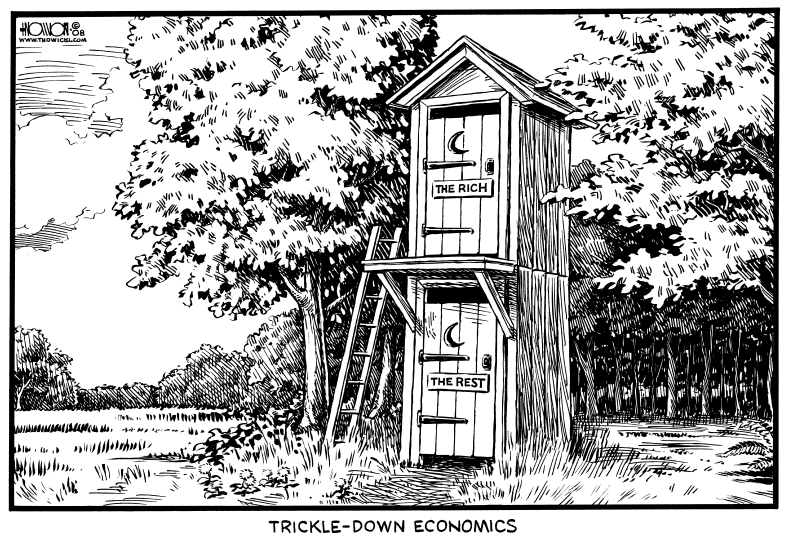Debunking Trickle-down Economics
In 1896,
William Jennings Bryan declared that, “There are two ideas of government. There
are those who believe that if you just legislate to make the well-to-do
prosperous, that their prosperity will leak through on those below.
The
Democratic idea has been that if you legislate to make the masses prosperous,
their prosperity will find its way up and through every class that rests upon
it.” Later, Lyndon B. Johnson added, in his brutally blunt style:
"Republicans [...] simply don't know how to manage the economy. They're so
busy operating the trickle-down theory, giving the richest corporations the
biggest break that the whole thing goes to hell in a hand basket."
This economic idea of “trickle-down” dates back to the
earlier horse-and-sparrow aphorism: “If you feed the horse enough oats, some
will pass through to the road for the sparrows.” In our time, it was formally
called “supply side economics.” Ross Perot called it “political voodoo.”
Whatever you call it, it has been a dominant political policy priority in many
governments and corporations for a long time. But, a metaphor producing an
easily-visualized image does not make it an apt model of reality.
